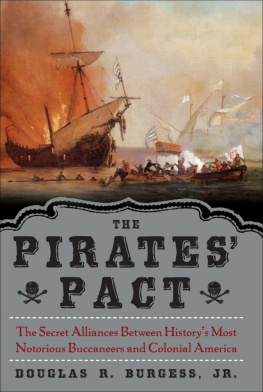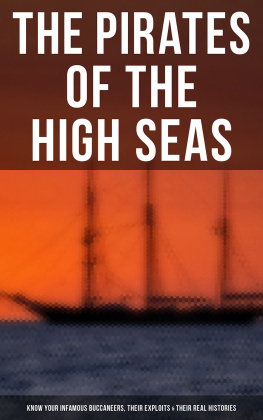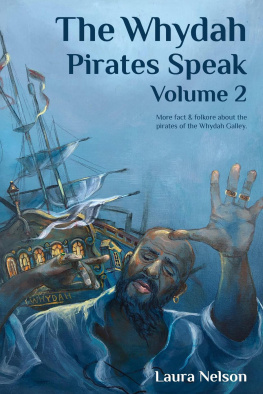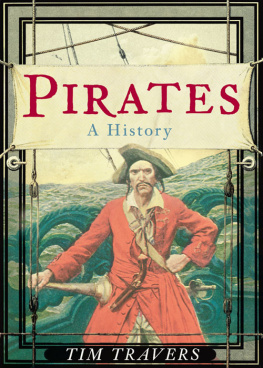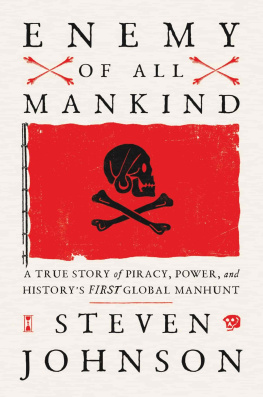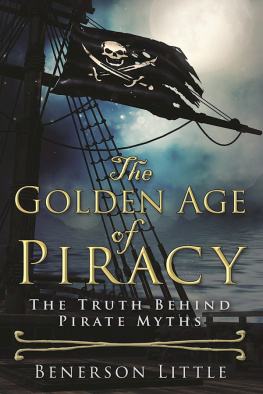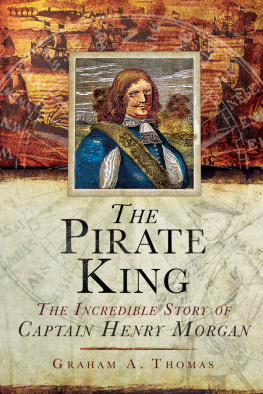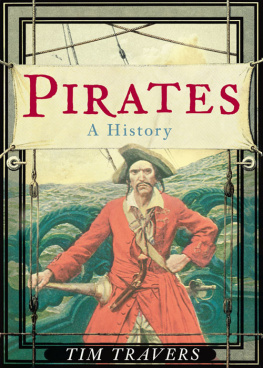Acknowledgments
WITHOUT THE WILLING AID OF A SCORE OF LIBRARIES AND archives, this book would not have been possible. I am greatly indebted to Ted Widmer and the staff of the John Carter Brown Library in Providence, Rhode Island, not only for providing sources too numerous to list but for harboring this particular reprobate for an entire year of research and writing. Special thanks to the Gilder Lehrman Society in New York and to the helpful staff of the Public Records Office in Kew, England, and of the Bermuda Archives of Hamilton, Bermuda. Thanks also to my family, for all their help and support, and to Albert Bui, for his inexhaustible patience and goodwill. I must also acknowledge my debt to Professors Douglas Cope, Tim Harris, and Seth Rockman.
My warmest thanks go to my editor, Bob Holtzman, for his sage advice and unflagging commitment to this project. It is my dearest hope that the assistance and enthusiasm of all these patient readers is justified by the result.
-1-
Enemies of the Human Race
NOW PIRACY IS ONLY A TERM FOR SEA ROBBERY, DECLARED JUStice Sir Charles Hedges in 1696. As one of the foremost jurists of his day, Sir Charles spoke with authority. He went on, If any man shall be assaulted within that jurisdiction, and his ship or goods violently taken away without legal authority, this is robbery and piracy. If the mariners of any ship shall violently dispossess the master, and afterwards carry away the ship itself of any of the goods, or tackle, apparel or furniture, in any place where the Lord Admiral hath, or pretends to hath jurisdiction, this is also robbery and piracy.
Perfectly simple, good, sound law. But his audience was unconvinced. The twelve jurymen who sat in judgment that day looked over at the accused, a bedraggled crew of misfits, mariners, and malcontents, and rendered their own decision. Despite Sir Charless blithe insistence, despite the heavy weight of the admiralty, which hung over the trial like a blue-gray cloud, and despite the unequivocal guilt of the men in the dock, they retreated into the solemn sanctum of their chambers and returned with a verdict: not guilty.
Clearly piracy was not just sea robbery, after all. Ordinary robbers, or highwaymen, received small leniency in English courts. What Sir Charless words failed to address was that piracy, unlike any other form of robbery, was intricately intertwined with issues of statehood, commerce, colonial relations, and even nationalism. Pirates were not just sea robbers; in an Englishmans eyes they could be seen as defenders of the flag against the dastardly French, Spanish, or Dutch, as agents of the crown, vigilantes, even heroes. They could also be seen as brigands and traitors, reaffirming the spirit if not the content of Sir Charless words. Yet an important distinction must be made at the very outset. Almost without exception, the only pirates that appeared in England, either in print or in person, were those standing trial for their crimes. This fact cannot be overemphasized, for it makes the aforementioned acquittal all the more remarkable. A trial, by its design, places the accused in an unlovely light; the majesty of the law serves to demonize him and rally public support against him. This is implicit in the very words by which cases are read into the docket: Regina versus Smith, or Jones, or Kidd. The king, queen, ministers of state, lords justice, and people of Great Britain all stand on one side of the aisle, the accused on the other. Little wonder then that so few escaped the dock intact.
Yet the eight men on trial before Sir Charles Hedges did just that, at least for the moment. Why? What was so remarkable about piracy that it could lead twelve stolid Londoners to flout a chief justice with aplomb? The answer may be found by extending our perspective. England might only see pirates as figures in a dock or gorily displayed on the cover of a pamphlet, but for its colonies the reality and identity of pirates were quite different. Only a small fraction of the seventeenth-and early eighteenth-century pirates ever reached trial. The vast majority did not, and it is these men that have largely been forgotten by history. Whether England saw them as heroes or criminals, to their own peoplethe coloniststhey were traders, sources of income, town burghers, respected merchantmen, brothers, fathers, husbands, sons, and neighbors. A pirate and his family might occupy the adjacent pew in ones local church (a not-uncommon occurrence, as many pirates were surprisingly pious and occasionally endowed churches from the spoils of a successful voyage), a queue at the local marketplace, or the next chair at an assembly meeting.
In other words, pirates were locals. For the entire period of the so-called golden age of Atlantic piracy, a thirty-year span from the close of the seventeenth century to the second decade of the eighteenth, piracy was intricately intermeshed within the social, economic, and political fabric of the American and Caribbean colonies. The pirates relationships with their fellow colonists, and most important with colonial governments, offer a new and almost entirely unexplored dimension to the study of Atlantic world history: a radical new perspective that challenges and may even transform much of our perception of the relationships between crown and colony in that era.
Pirates and the Law
Before we can understand the challenge to English law posed by colonial sponsorship of piracy, we must first consider the nature of that law itself. English law in the seventeenth century was divided into statutory law, which was brought at the initiative of the English government, and common law, which was derived from the history of individual cases. Statutory law has two principal components: acts of Parliament and Orders in Council. In both instances, a legal policy or criminal offense is articulated directly and the corresponding punishment for disobedience is prescribed. The latter, however, more commonly acts as a response to individual legal or social problems. It is also, along with royal proclamations, the principal source for criminal law in the early modern period.
Throughout the seventeenth century the problem of piracy was addressed primarily by the king in council rather than by Parliament. We find relatively few instances of piracy law articulated by the Commons, yet the record of proclamations is replete with examples: between 1603 and 1625, the reign of King James I, there are no fewer than fifteen separate proclamations dealing solely with the problem of English and foreign piracy. This, as we shall see, reveals much about the relationship between piracy and the crowns state-building agenda throughout the seventeenth century.
The articulation of the crime of piracy in English statutory law centers primarily on piratical acts. This returns us to one of the most elemental divisions within criminal law. A crime had three components: the mens rea, or mental state of the criminal; the actus reus, or acts committed; and the locus, where the crime occurred. The king and his ministers were little concerned with the mental state of the accused (though it would come into play repeatedly when considering privateering commissions granted during war), but of the acts themselves and the locale they had much to say. Pirates, one 1606 proclamation declared, have under colour of friendship and peaceable traffic committed most foul outrages, murders, spoils and depredations within the straits and Mediterranean Seas, as well within the Ports without, to the great offense of all our friends, to the extreme loss and hurt of our Merchants trading in those parts, and to the great displeasure of God and men.
With such a broad range of acts, the definition of piracy under statutory law might best be described as whatever acts of depredation at sea the crown wished to curtail, occurring in whichever locale it was most particularly concerned at that time. While the

